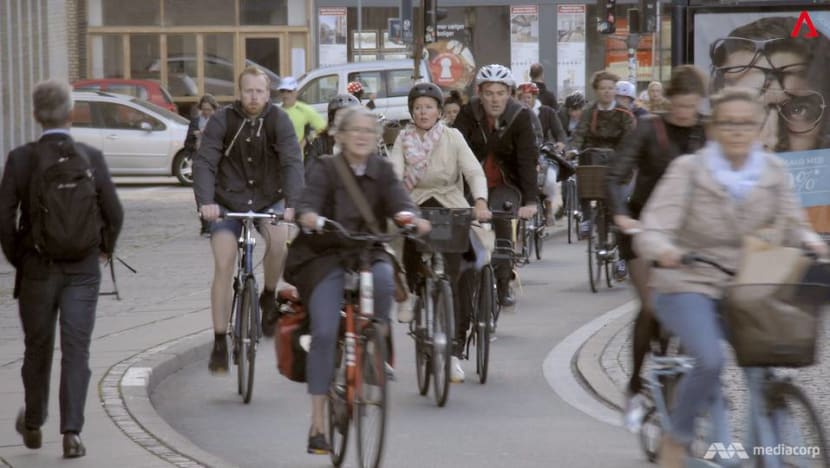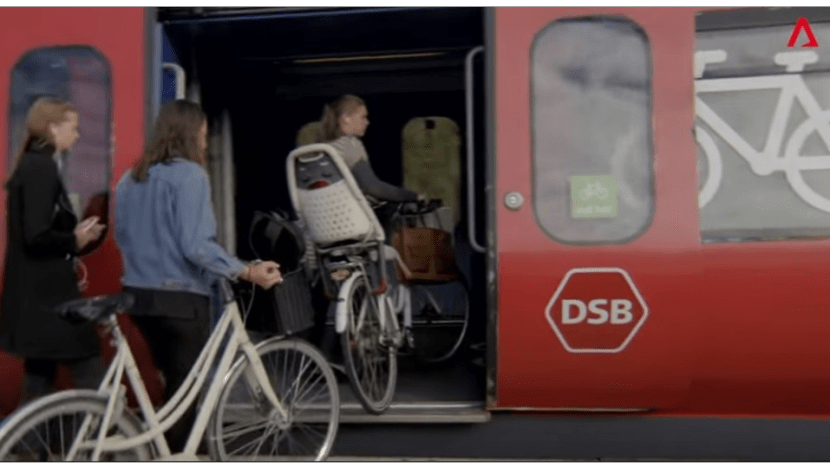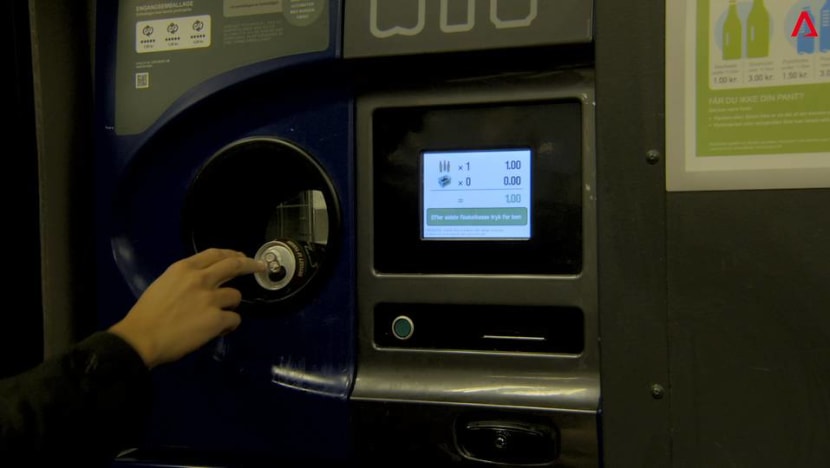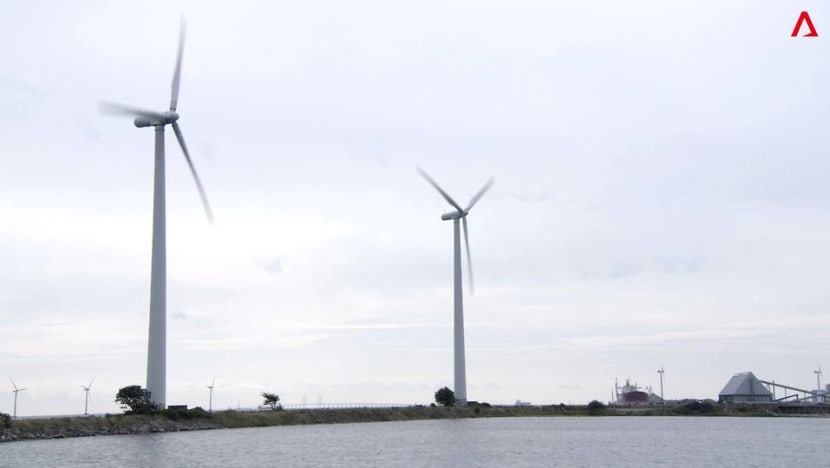Going green to survive: Copenhagen, where even a mayor cycles to work
From cycling to recycling, climate change has forced the people of Copenhagen to adapt to a ‘new normal’, the programme Challenge Tomorrow discovers.

COPENHAGEN: As the environment mayor of Copenhagen, Morten Kabell walks the talk by cycling to work every day, to reduce his carbon footprint.
And he is not alone in this great cycling city where bicycles outnumber cars and half of its residents cycle to work or school.
Mr Kabell, Copenhagen’s mayor of technical and environmental affairs, said: “Don’t be mistaken, Copenhageners are as lazy as anybody else in the world.
“And by making a great bicycle infrastructure, we made it easy and fast for Copenhageners to get to work on their bicycles; that’s why they choose the bicycles.”

Lanes that may once have been meant for cars are now exclusively for bikes, and this city - about one tenth the size of Singapore - has almost 400km of designated bike lanes.
Cycling produces almost zero carbon emissions, and this is helping the Danish capital in its quest to be carbon neutral.
In fact, being eco-friendly is part of the DNA of the Danes, and in an upcoming episode airing Sunday (March 5), Challenge Tomorrow looks at how some countries like Denmark, India and Singapore grapple and adapt to climate change.
WATCH: Beyond cycling, to composting and recycling (1:30)
WHEN IT LITERALLY PAYS TO BE GREEN
Software engineer Morten Skov Madsen said that the average Danish family makes eco-friendly choices mainly because it’s practical, and in some instances, required by law.
Like many of his friends, he doesn’t own a car and his family of three commutes everywhere on their bicycles.
He said: “If it’s very rainy, I like to bring the bike to the commuter’s train because there are special bike compartments. Also, it’s free for me to bring the bike onto the train.”
He recycles his glass bottles and metals cans at the supermarket, and gets cash rebates in return.

And if he sorts out his trash at home and recycles some of them (for free), that translates into cost savings too as ordinarily, he’d have to pay to get rid of any waste generated at home.
Mr Kabell said the city has rolled out more than 100 green initiatives over the years, to push the Danish capital towards carbon neutrality by 2025.
This includes retrofitting all the power plants to be sustainable, removing coal and oil from the energy supply, spending more than S$1 billion on wind turbines and getting rid of as many fossil fuel cars as possible.
Mr Kabell said: “We set the vision of carbon neutrality in only nine years’ time from now, simply because we can and we have to.
“Cities have the capacity to act, and facing the challenges of climate change of today, then anybody who has the possibility to act also in my mind, has the obligation to act.”
WINDY SOLUTIONS
Beyond changing lifestyles, Copenhagen is also able to sail toward carbon neutrality due to the country’s successful ability to harness its most abundant domestic natural resource: Wind.
On a very windy day, the country’s windfarms are able to power all of Copenhagen’s energy needs.

And in 2015, an impressive 42 per cent of the total electricity consumed in Denmark came from wind turbines alone.
Mr Jørgen S Christensen, the chief technology officer of the Danish Energy Association, said that the country started exploring the idea of clean electricity production some 30 years ago and, fortunately, there were many political initiatives in support of the production of wind turbines.
Today, some of this wind energy is even exported to neighbouring countries when there’s excess energy in the grid.
Mr Jørgen Abildgaard, the executive climate project director of Copenhagen, said that some might argue that what the city does about carbon emissions today may not matter much on the global scale.
“But looking at global development in the coming years, if we do not have more sustainable solutions related to infrastructure … then it’s for sure that it’s not possible to solve the climate problem in the world,” he said.
This episode of Challenge Tomorrow airs Sunday, March 5, at 8pm (SG/HK).












